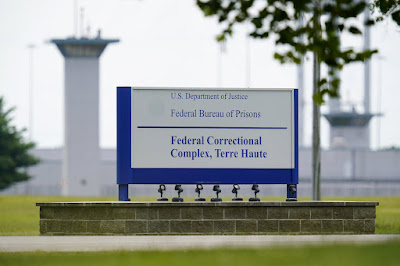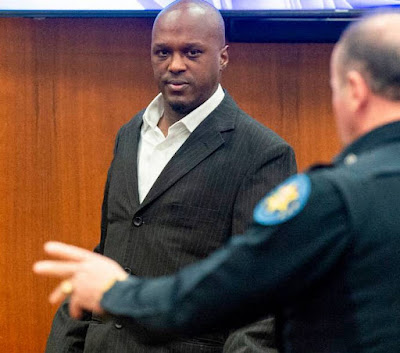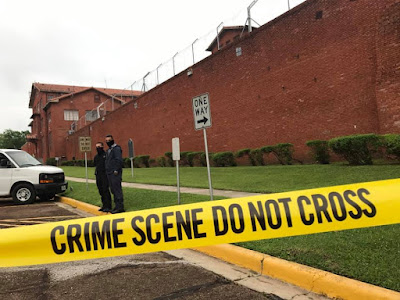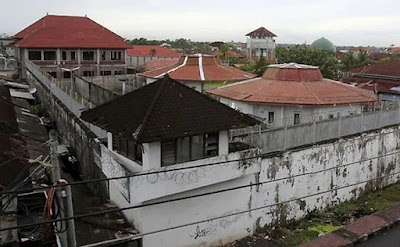 |
| Orange-Osceola State Attorney Aramis Ayala |
When State Attorney Aramis Ayala, a Democrat, announced in March that she would no longer seek the death penalty in capital cases, Republican Gov. Scott took away more than 20 murder cases in her jurisdiction. Now, Ayala is suing Scott to get them back.
At issue is whether Gov. Rick Scott has the authority to remove cases from a state attorney who refuses to seek capital punishment.
The state Supreme Court is considering where the power resides.
Ayala, who took office in January, is the first black elected prosecutor in Florida. She says she's decided that the death penalty is broken and does not achieve justice.
"I have the freedom to make the decision and utilize discretion that is granted to me by the Constitution," she said. "There is no statute that requires me to seek death."
Ayala says local prosecutors make such judgment calls all the time — including what charges to bring, what sentences to seek, and whether to make plea deals.
But one of the cases in question was the high profile double murder of a pregnant woman and an Orlando police officer — the first case Gov. Scott reassigned to a different state attorney. Ayala says he's overriding her authority as a prosecutor.
"It's very clear that the governor is attacking the independence of the prosecutors," said Ayala. "He does have power but it's an overreach of his power."
Scott stands by his decision and is fighting Ayala's lawsuits. He cites state law that gives the governor the ability to re-assign cases for any "good and sufficient reason, the Governor determines that the ends of justice would be best served."
"Every citizen deserves a state attorney that's going to fully prosecute cases," Scott told reporters in April, the day Ayala filed lawsuits in both state and federal court.
"I'm going to continue to review cases and make sure that we always think about the victim," he said.
State Rep. Bob Cortes, a Republican from suburban Orlando, was among the first lawmakers to call for Gov. Scott to remove Ayala from capital cases. He says she is stepping on the legislature's territory.
"By her dictating that she's not going to follow what we have set in parameters or law, she's actually rewriting the law," said Cortes. "That's the job reserved for the legislature."
That's what the Florida House is arguing in a friend of the court brief filed with the Florida Supreme Court.
Even Ayala's peers are siding with Gov. Scott in a court filing.
"When you say I am not going to consider the death penalty in any case in my office even though that is the law of the state of Florida, that is an abuse of discretion," said State Attorney Glenn Hess of Panama City, president of the Florida Prosecuting Attorneys Association.
But more than two dozen prosecutors and judges from around the country are siding with Ayala, along with civil rights groups. They argue prosecutorial independence is at stake.
Orlando Democrat Randolph Bracy, chair of the Florida Senate's Criminal Justice Committee, says he doesn't necessarily agree with Ayala's position on the death penalty but affirms her right to make that call. Bracy says the governor's response sends a chilling message.
"You've got the first black state attorney and within a couple of months she's removed from certain cases," he said. "I think there are a lot of people of color who take offense to how this was done."
Bracy says Ayala should be accountable to central Florida voters, not the governor.
The question is where a prosecutor's power begins and ends, according to Florida State University Law Professor Talbot "Sandy" D'Alemberte, a former president of the American Bar Association. He favors state attorney Ayala in this fight.
"Where is the governor's power to displace the judgment of a prosecutor who is an elected prosecutor?" he asked. "In my opinion Gov. Scott has gone beyond the scope of his power.
As the Florida Supreme Court takes up the issue, Ayala is also taking heat from the legislature. Lawmakers are planning to cut more than a million dollars and 21 jobs from her budget. Sen. Bracy says its political fallout for a bold decision.
"I think the power structure in Florida just wasn't ready for that."
Source:
NPR, Debbie Elliott, May 8, 2017
⚑ | Report an error, an omission, a typo; suggest a story or a new angle to an existing story; submit a piece, a comment; recommend a resource; contact the webmaster, contact us:
deathpenaltynews@gmail.com.
Opposed to Capital Punishment? Help us keep this blog up and running! DONATE!






.jpg)





